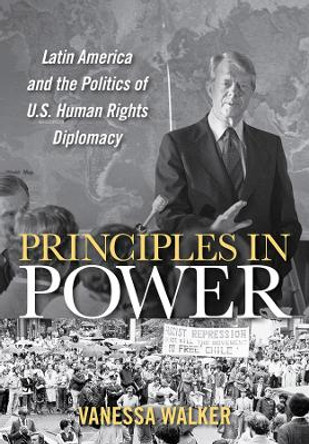Description
"Nowhere did two understandings of U.S. identity-human rights and anticommunism-come more in conflict with each other than they did in Latin America. To refocus U.S. policy on human rights and democracy required a rethinking of U.S. policy as a whole. It required policy makers to choose between policies designed to defeat communism at any cost and those that remain within the bounds of the rule of law."-from the Introduction
Kathryn Sikkink believes that the adoption of human rights policy represents a positive change in the relationship between the United States and Latin America. In Mixed Signals she traces a gradual but remarkable shift in U.S. foreign policy over the last generation. By the 1970s, an unthinking anticommunist stance had tarnished the reputation of the U.S. government throughout Latin America, associating Washington with tyrannical and often brutally murderous regimes. Sikkink recounts the reemergence of human rights as a substantive concern, showing how external pressures from activist groups and the institution of a human rights bureau inside the State Department have combined to remake Washington's agenda, and its image, in Latin America. The current war against terrorism, Sikkink warns, could repeat the mistakes of the past unless we insist that the struggle against terrorism be conducted with respect for human rights and the rule of law.
About the Author
Kathryn Sikkink is the Arleen C. Carlson Professor of Political Science at the University of Minnesota. She is the author of Ideas and Institutions: Developmentalism in Brazil and Argentina and coauthor with Margaret E. Keck of Activists beyond Borders: Advocacy Networks in International Politics, also from Cornell, winner of the 1999 Grawemeyer Award for Ideas Improving World Order.
Reviews
Few scholars have argued as persuasively for the power of principled ideas and global civil society in shaping world politics as Kathryn Sikkink. This excellent book provides yet another sophisticated and cogent analysis of how global networks of principled individuals and groups have changed the world. It demonstrates convincingly that the human rights transnational advocacy network played a crucial role in changing the foreign policy of the world's most powerful state and the human rights practices of states throughout the Americas.
* Latin American Politics and Society *Mixed Signals is an excellent account of the development of U.S. human rights policy, with a special emphasis on Latin America. It is impressive in its empirical scope, careful documentation, and analytic subtlety. It will prove useful to scholars and students.
* Perspectives on Politics *Sikkink adds to her important work on nongovernmental organizations and advocacy networks with this illuminating account of how persistent policy entrepreneurs armed with fresh ideas inserted and then institutionalized human rights promotion into inter-American relations. The stakes in their 60-year-long struggle have been high, in terms of both American self-identity and Latin American lives, and Sikkink supplements recently released U.S. government documents with interviews of lower-level officials to condemn Henry Kissinger for signaling 'green lights' to vicious repression in Chile and Argentina and Ronald Reagan and Jeanne Kirkpatrick for their careless embrace of bloody Central American dictators.
* Foreign Affairs *Sikkink's work is an original and significant contribution to the literature. It is superbly organized, clear, concise, yet filled with the detail, authority, theoretical grasp, and practical understanding of the legislative and international agendas on the subject. Mixed Signals will stand as a benchmark in the field for some time.
* International History Review *Book Information
ISBN 9780801474194
Author Kathryn A. Sikkink
Format Paperback
Page Count 288
Imprint Cornell University Press
Publisher Cornell University Press
Weight(grams) 454g
Dimensions(mm) 229mm * 152mm * 19mm







